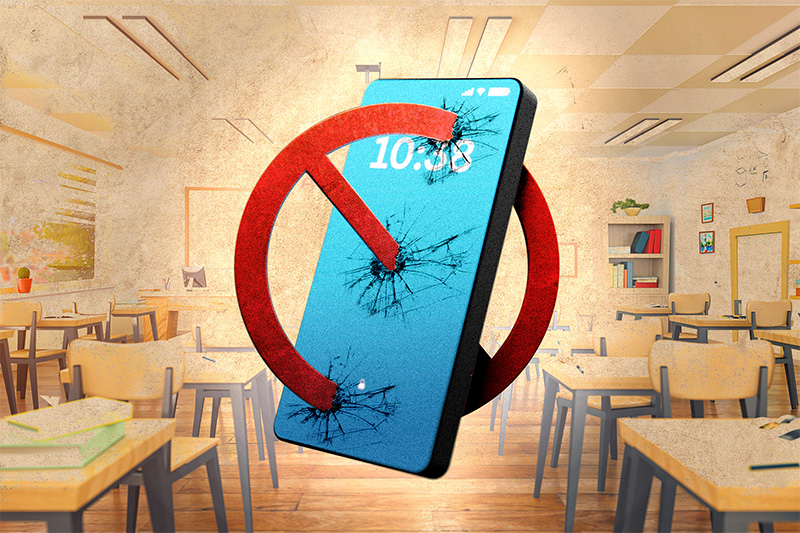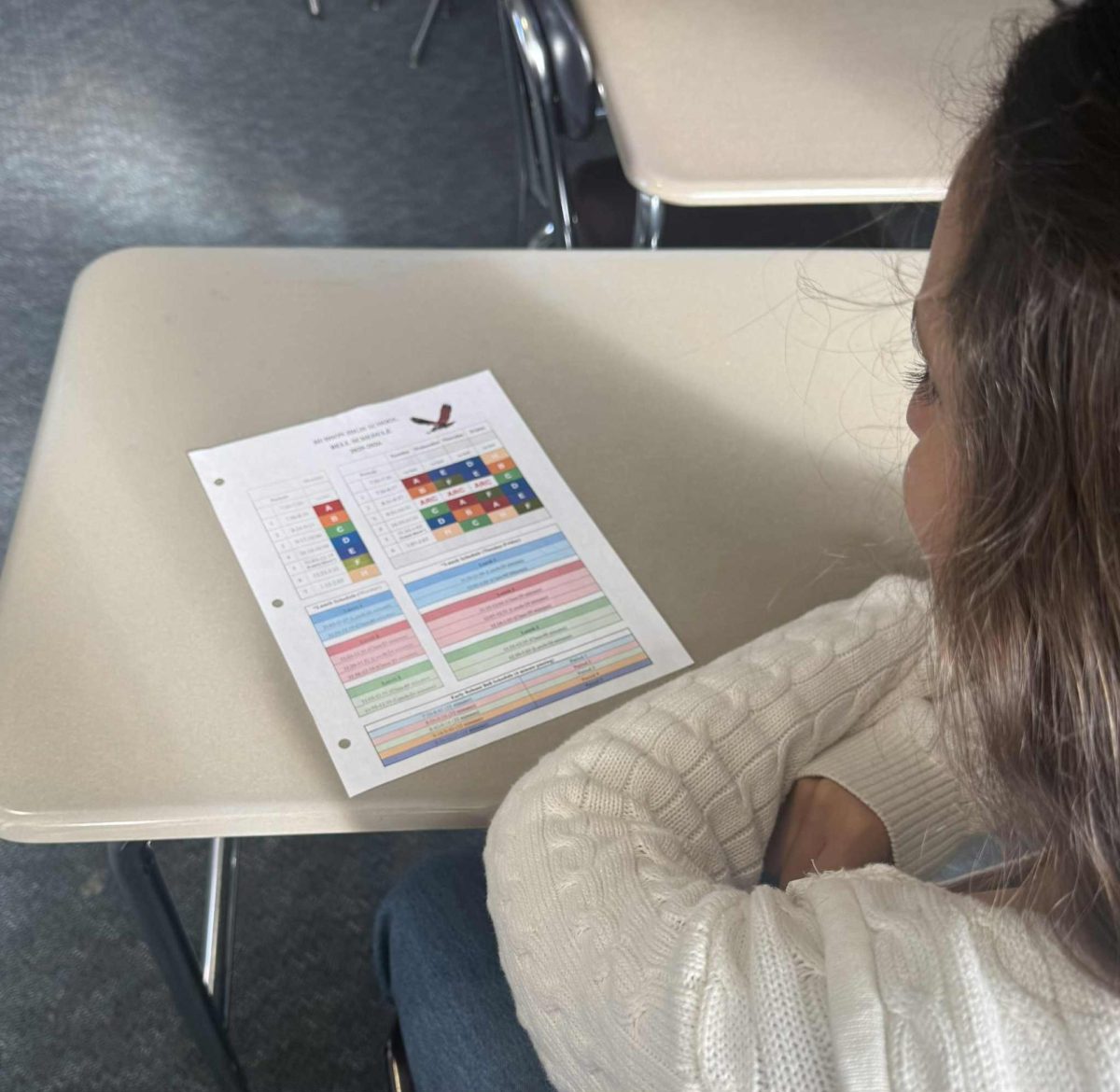HUDSON- This fall, students no longer have the luxury of keeping their phones on them in class with the revamp of the school’s phone policy.
The policy is not new, but in years’ past it has not been consistently followed.
“I used it all along because the policy already existed; the only difference is they are actually enforcing it,” said business teacher Kristopher Langan.
Students are required to place their phones in designated holders at the start of each class; violators will face repercussions, including having to turn their phones over to the front office.
Administrators have suggested that if the issues persist, the rules could escalate, possibly to a complete ban on devices at school.
This phone policy approach stems from a broader concern about cell phones in schools
“Cell phones are distracting to the learning environment,” Superintendent Dr. Brian Reagan stated, making the point that the classroom focus is the top priority.
Not everyone is convinced the new tougher phone policy is working. Students are divided on whether the policy is helping or simply creating frustration.

“I mean, it is kinda annoying, but it makes sense,” said freshman Kenny Durkin, adding that “One pro is that students might not be distracted on their phones, but one con is students might need their phones if there’s an emergency.”
Teachers, however, tend to say the change is positive for their learning environments.
Frank Jones, a Hudson High special education teacher said, “I think it is fantastic! We’re reducing distractions from classrooms, and it helps everyone learn better.”
He added that it has also “increased student whining,” but the benefits to focus and attention have been noticeable.
Langan reflected on how the students have adjusted to the policy, saying, “I think because everyone’s following it right now, it’s been easier; it’s when teachers stop following it that it becomes a problem. It hasn’t been a problem with the exception of that.”
One noticeable change is that many teachers were lax about using phones during ARC over the past few years.
“It is a lot more strict like in ARC, and you get in a lot of trouble now,” said freshman Eros Moreira on the new phone policy. “ I think they should make it so you can use your phone more in ARC in general.”
Though the students who were interviewed disliked the new policy, teachers seemed to think the policy was “brilliant” and was “increasing focus”.
This revamped policy came before the state announced that legislation had been passed to ban cellphones in schools starting in the 2026-2027 school year. According to the legislation, the state law would prohibit student cell phone use during school hours, and is supposed to be enforced by next fall.
Langan expressed his forethought of this change, saying, “We’re expecting next year the state is all ready; it’s already passed through the house, but it’s going to be bell to bell. Students won’t have access from the moment they come in, you won’t be taking it into class, and it’s going to be until the end of the day. I just hope that comes through so this whole thing goes away.”
In years past, students felt the same about the old phone policy that current students feel about the new phone policy.
“The policy is overprotective and controlling. They treat us like children. I believe it’s dangerous not to be able to have your phones,” former HHS Senior Alexis Gigliotti said in a survey response on the policy from this previous story.
The U.S. is just one of the other countries around the world that have also banned cellphones from their schools. France has banned cellphones for kids below the age of 15 since September of 2018, and China has completely banned cellphones from schools since last year, all according to the Harvard Gazette. The Harvard Gazette also states that, as of 2020, 77% of all U.S. schools have banned cellphones for non-academic purposes, according to the National Center for Education Statistics.








